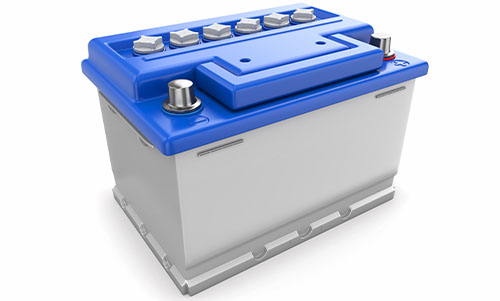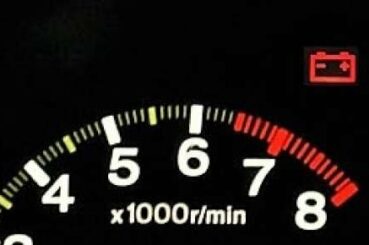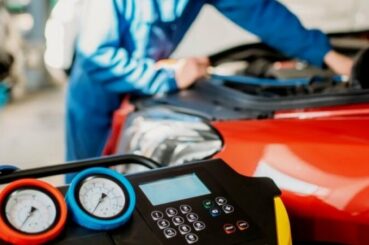
If your battery warning light comes on whilst you’re driving, it means that your battery is no longer being charged by the alternator and is running only on its own charge. That means that your car is only running on battery power that will eventually run out, bringing your car to a halt.
What should you do if the battery warning light comes on?
The first thing you should do is turn off any electrical systems in your car that you don’t need. That means turning off the stereo, air conditioning, heated seats and anything you may be charging in the car. If it is safe to drive without your headlights and you can see clearly, turn them off as well to conserve power.
You then have two choices and they depend really on where you are when the battery light stays on.
Stop as soon as it’s safe to do so
If you’re a long way from home, or you don’t know where your nearest garage is, then your safety and that of your passengers and other road users is paramount. You could lose power steering, making your car harder to control, followed by complete power loss, at any time and this has the potential to cause an accident.
With that in mind, you should focus on finding somewhere safe to stop your car and call your local garage or breakdown service to come and recover your vehicle.
Continue to drive
If you are close to home, or to a garage that will be able to check your car, you should be able to keep driving for a short while without losing power. Again, ensure that all unnecessary electrical systems are turned off as this will increase the distance you will be able to drive.
It is important, though, that you have your car checked by your local garage as soon as possible. When you do turn your car off, you may not be able to start it again if the battery does not have enough charge to power the starter motor.
What causes the battery warning light to come on?
As with many other dashboard warning lights, the reason behind them becoming illuminated is usually something straightforward. However, there’s always the chance that the cause is something a little more serious, and costly.
If you see your battery light on, it has probably been caused by one of these things:
1. Faulty Alternator

Your alternator produces the electrical charge that is stored in your car’s battery. It also provides electricity to the car while it’s running, helping to power things like the headlights, heater, radio and electric windows.
If your alternator fails, your car’s electrical systems are all draining power directly from the battery, hence why your car will lose power and ultimately come to a stop. There is simply not enough power stored in your car’s battery to power all the necessary electrical systems and keep your car running at the same time.
2. Broken Alternator Belt
This is perhaps the most serious problem, as the belt not only drives the alternator, but the engine coolant pump and power steering system.
If your engine warning light comes on and you notice that either your engine temperature is increasing, or your car becomes much harder to steer, you may have an issue with the alternator belt.
If this is the case, we would recommend that you stop your car as soon as it’s safe to do so and call your local garage or breakdown service. If you continue to drive with a broken alternator belt you could cause serious damage to your car’s engine.
3. Damaged Battery or Cables
Probably the most common cause of the battery warning light is a failure of the battery itself. Over time, batteries can become damaged, the terminals can become corroded, or the cables can become dislodged or damaged.
If this happens then the battery will no longer be able to hold the charge from the alternator and will gradually lose power over time.
You can check the battery for damage or corrosion, but you must be extremely careful and wear eye protection when you do so. We would always recommend that you have your battery checked by a professional technician if you suspect that it may be damaged in any way.
As you can see, if your battery warning light comes on and stays on it can be a sign of something simple or something that has the potential to cause serious damage to your vehicle’s engine. Either way, it’s always better to be safe than sorry so don’t ignore that light and have your car checked by your local garage as soon as possible.
Find out more about what dashboard warning lights mean by reading our handy guide.





